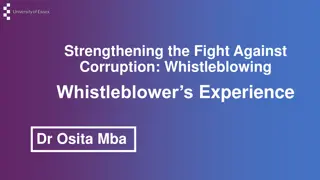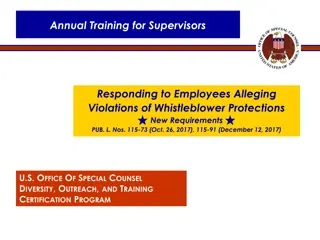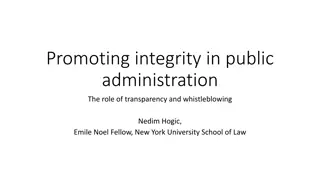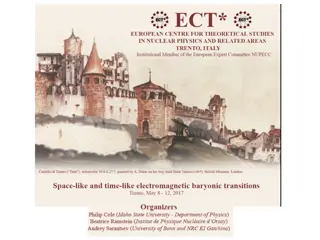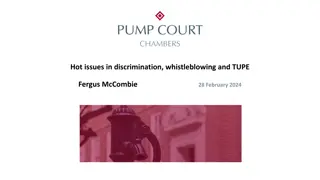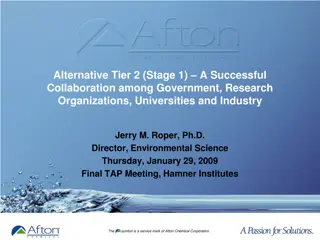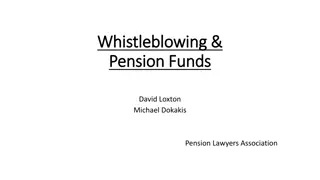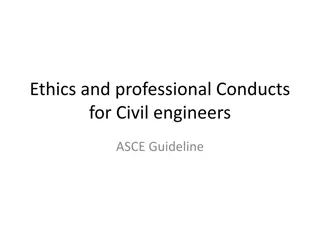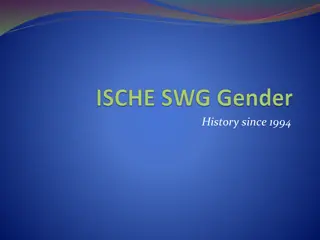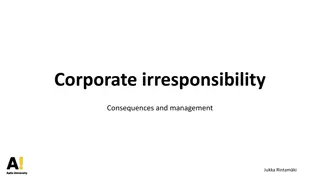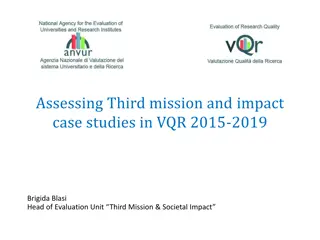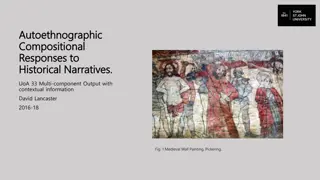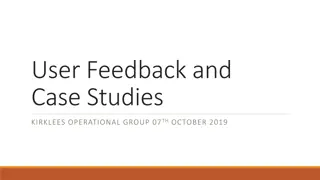Exploring Whistleblowing Through Historical Case Studies
Delve into the world of whistleblowing with a comprehensive discussion on the topic, featuring insights from international case studies and the Western Balkans experience. Learn about key historical figures like Deep Throat in the Watergate scandal, Frank Serpico confronting corruption in the NYPD, and the tragic story of Satyendra Dubey. Understand the importance of creating supportive environments for whistleblowers and the impact of their actions on society.
Download Presentation

Please find below an Image/Link to download the presentation.
The content on the website is provided AS IS for your information and personal use only. It may not be sold, licensed, or shared on other websites without obtaining consent from the author.If you encounter any issues during the download, it is possible that the publisher has removed the file from their server.
You are allowed to download the files provided on this website for personal or commercial use, subject to the condition that they are used lawfully. All files are the property of their respective owners.
The content on the website is provided AS IS for your information and personal use only. It may not be sold, licensed, or shared on other websites without obtaining consent from the author.
E N D
Presentation Transcript
International Case Studies and Western Balkans Experience Alma Sedlar
Agenda Time Topic Speaker/Facilitator 9am to 19.10am 9.10am to 9.25am Introductions/Agenda Introduction from Commissioner John Devitt SCPC Commissioner 9.25am to 10.20am Introduction to Whistleblowing Protections (General Principles and International Standards) and Whistleblowing Perceptions John Devitt 10.20am to 10.30am 10.30am to 12.00pm Rest Break Creating Supportive Environments for Whistleblowers John Devitt, Alma Sedlar 12pm to 1pm 1.00pm to2.20pm Lunch/Rest Break How the law applies to reporting persons, disclosures; Confidentiality, Complaint Filing, Responsibility of Institutions, Abuse of Disclosure Rest Break International Case Studies and Western Balkans Experience Irena Popovska 2.20pm to 2.30pm 2.30pm to 4.00pm Alma Sedlar
Deep Throat (Watergate, 1972) William Mark Felt Sr. (August 17, 1913 December 18, 2008) was a FBI special agent and Associate Director, from 1942 until 1973. During time at the FBI Felt served as an anonymous informant, nicknamed Deep Throat , to reporters Bob Woodward and Carl Bernstein of The Washington Post. He provided them with critical information about the Watergate scandal, which led to the resignation of President Richard Nixon in 1974.
Serpico (1971) Frank Serpico was the first police officer in the history of the NYPD to step forward to report and subsequently testify openly about widespread, systemic corruption payoffs amounting to millions of dollars. The 1973 movie Serpico was made on the basis of his story.
Challenger (1986) On January 28, 1986, the NASA shuttle flight of Space Shuttle Challenger broke apart 73 seconds into its flight, killing all seven crew members. Roger Boisjoly, an mechanical engineer, had warned NASA on the failure on the O-rings a year and few days before the disaster.
Satyendra Dubey (2003) Satyendra Dubey (1973 2003) was the Project Director in the National Highways Authority of India (NHAI). He reported corruption in the Golden Quadrilateral construction project. He sent the letter on serious irregularities to the then Prime Minister Vajpayee and asked for confidentiality but his identity had been revealed. He was killed in Gaya, Bihar. highway
Milan Vukeli (2007) Milan Vukeli , a civil engineer in Banja Luka Construction Bureau, reported corruption construction disclosed information on alleged corruption to the journalists. in the and sector, On 6 November 2007 he died when the bomb under his car exploded. The found his killers. police never
Hotel Ramada Case (2016) Patricija Pobri , a Sales and Marketing Director of a hotel Ramada in Montenegro, reported to a Member of the Parliament that the meetings of one political party, held in a hotel, were paid from the budget of the Railway Directorate, director of which was a member of this party The case was publicly disclosed, and the hotel management did not renew the contract of Ms. Pobri after its expiration The ACC did not grant a whistle-blower status to Ms. Pobri because she reported to the MP and not to the ACC (although the law allows to report also other relevant entitiess) Ms. Pobri was granted with a person connected to a whistleblower status instead, for which the law does not provide any protection - - - -
Infrastructure Bled Case (2018) Marjana Mrak, an employee of the public company Infrastructure Bled in Slovenia reported the allegations of irregularities in public procurement to the ACC and the case was publicly exposed later - After realizing that she was the one who reported the case, the retaliation against Ms. Mrak started at her workplace, and she was fired at the end - The ACC granted a protected status to Ms. Mrak - Ms. Mrak found a new job in another public sector institution soon after the case between Ms. Mrak and her former employer due to the unjustified dismissal was completed on the court -
Whistleblower Protection in Western Balkans (1) - Albania Law on protection of whistleblowers (2016), HIDAACI serves as an external body for reports, decide on requests for protection, provide protection, monitor internal reporting mechanisms, support implementation of the law, provides awareness raising - Bosnia and Herzegovina Law on the protection of persons who report corruption in the institutions of Bosnia and Herzegovina (at the national level, 2014) and Law on the protection of people who report corruption (Republic of Srpska, 2016) - Croatia Whistleblower Protection Act (2019)
Whistleblower Protection in Western Balkans (2) - Kosovo - Law on Protection of Whistleblowers (2019) - North Macedonia The Law on Protection of Whistleblowers (2016, amended 2019) - Montenegro Anti-Corruption Law (2014). ACC is in charge for whistleblower protection. - Serbia The Law on Whistleblower Protection (2014) was recognized as one of the best whistleblower protection laws at international level.
Lessons learned Western Balkans - Protected disclosures should not be limited only to corruption - Limited resources of the ACCs to really protect the whistleblowers - Media and CSOs can support awareness, advocate for the better legislative framework and an effective protection, and monitoring its effectiveness (Pi taljka, Serbia; TI BiH ) - Trust in the institutions might be crucial for reporting and request for protection
Some of the key provisions of the Slovenian WP legislation (1) - Articles (23 25) on Whistleblower protection are included in Integrity and Prevention of Corruption Act (IPCA, 2010) - ANYONE can report acts corruption in public or private sector to the ACC or other competent body - If the ACC finds the elements criminal offence, it should inform other competent body to investigate, and request to be informed on the outcomes of investigation - The ACC or other competent body needs to inform a whistleblower on the steps taken on the basis of the whistleblower report if he/she demands it
Some of the key provisions of the Slovenian WP legislation (2) - - It is not allowed to reveal the identity of a whistleblower who submit a report (only court can decide on disclosure of identity under some special circumstances) - - A whistleblower can demand the compensation for retaliation and harm caused - - The ACC may offer assistance to the person reporting the case in establishing the causal relationship between adverse consequences and the retaliatory measures. - - If the casual relationship is confirmed, the ACC can demand from the employer to immediately stop with retaliation - - Mala fide ( bad faith ) reports can be sanctioned - - Burden of proof is on the employer
Different aspects of the Slovenian WP framework + Good provisions on protection of confidentiality Connection with the Witness protection programme External disclosure are allowed (without disclosure of confidential data) - Protection is in fact better for employees from private sector Law is in fact limited to reporting of corruption (to the ACC) No measures or procedures for internal reporting Slow court procedures External reporting is generally allowed but no extra protection measures are provided or have been implemented so far - - - - - - - - - -
Lessons learned - legislation Identity of the whistleblower must be protected Time frame for internal investigations as well for whistleblower protection measures is important A comprehensive and dedicated whistleblower protection law is much better than the provisions included in a wider anti-corruption law Broad scope of protected disclosure (not only corruption) Broad scope of protected reporting persons (not only employees from the public sector or only the current employees) Clear rules and procedures (including internal procedures for safe reporting) that should be clearly communicated within the organization
Lessons learned - implementation The WP law may be great on the paper but its often very had to implement it due to the different reasons The existence of the competent institution and the public trust is of the main importance for the successful whistleblowing The importance of the cooperation with other competent institutions NGO s and media can be of key importance on awareness raising and monitoring the effectiveness of the law and protection measures Reason in delay on implementing the WP law provisions may be in lack of the knowledge and awareness, not necessarily in negative perception of the whistleblowers or loopholes in the legislation
Lessons learned internal reporting Establish safe reporting channels (i.e. don t put a post box under the camera) Communicate with the reporting person Don t discuss personal data of reporting persons Don t discuss any data of whistleblower with media Keep records safe! Awareness raising on safe reporting channels, protection measures and importance of the whistleblowing is very important Clear rules and procedures (including internal procedures for safe reporting) which should be properly communicated within the organization The whistleblowers (and other employees) should see that someone react on the allegations of wrongdoing PROTECT THE CONFIDENTALITY!
Exercise A CASE STUDY 22
My boss is corrupted! You are a coordinator of the education department in your (public) institution. You think that your boss has hired a friend to deliver training, on suspicious terms which are costing your institution over 20.000 EUR a year. You notice that more courses are booked than needed and the trainer is always paid even when a course has been cancelled. Furthermore, the trainer is also paid when training sessions are delivered by the staff of your organization. One day when your boss is out, you see the trainer enter your boss' office and leave an envelope. You take a look and see that it is filled with 20 EUR notes, amounting to some 2,000 EUR. You know that your boss has lots of influence not only in your organization but that he also has a very close relationship with the government since one of the most influential minister is his uncle.
Questions for discussion (1) On the basis of information from the example, please discuss the following: What would you do? What would you think? How would you respond? Would you tell anyone? To whom? Would you make a report? To whom would you report? Why? Would you go to the media? Why? Would you consider protection of your identity? What would you do to protect it? Which channels would you use for reporting? What kind of information would you include in the report? Would you collect evidence by yourself? What would you do if you were fired? How would you protect yourself? Would you tell anyone that you made a report? Would you cooperate with potential investigators during the investigations of the alleged wrongdoing? How would you communicate with investigators? What would you do if your identity were revealed to the media?
Questions for discussion (2) Now, let s change the roles. You are a responsible person within the organization to whom whistleblowers from the example would approach to report the above mentioned alleged wrongdoing. What would you do now? What would you say to the whistleblower? Where would you meet him? Would you protect his/her identity? How? What would you advice him/her? Would you try to keep further communication with him/her? How? What kind of channels would you advice for further communication? Would you speak with anyone on the report? With whom? Would you discuss the case with your colleagues? If so, would you mention the source of information? Would you discuss the case with your wife/husband? What would you do if you receive a call from journalist regarding this particular case? What would you tell him/her? Would you disclose the name of a whistleblower? Would you take a record of the discussion? Where would you keep these records? What would you do with his/her report of the alleged wrongdoing?
THANK YOU! Any questions? Comments? Remarks? 26
Sources European Commission. Commission Staff Working Document. Bosnia and Herzegovina 2020 Report https://ec.europa.eu/neighbourhood-enlargement/sites/default/files/bosnia_and_herzegovina_report_2020.pdf Kalajd i , Mia: Experts welcome Croatia's new Whistleblower act, but warn of flaws. Published on 20 November 2019 https://www.cms-lawnow.com/ealerts/2019/11/experts-welcome-croatias-new-whistleblower-act-but-warn-of-flaws?cc_lang=en Kosovo Law Institute (KLI). "Public whistleblowing for non-implementation of Law on the Protection of Whistleblowers. Published on 18. April 2020 https://kli-ks.org/en/public-whistleblowing-for-non-implementation-of-law-on-the-protection-of-whistleblowers/ Ministry of Justice of Republic of Serbia. (Ministarstvo pravde). Primena Zakona o za titi uzbunjiva a (2015 - 2020) - Statistika i iskustva. Junij 2021. https://www.mpravde.gov.rs/files/Izve%C5%A1taj%20o%20primeni%20Zakona%20o%20za%C5%A1titi%20uzbunjiva%C4%8Da%20(20 15-2020).pdf SELDI. Anti-Corruption Agencies in the Western Balkan Countries: Delivering on the Promise. Policy Brief, Number 8, 2019 https://seldi.net/fileadmin/public/PDF/Publications/Policy_Brief_8/SELDI_PB_08_Anti-Corruption_Agencies.pdf
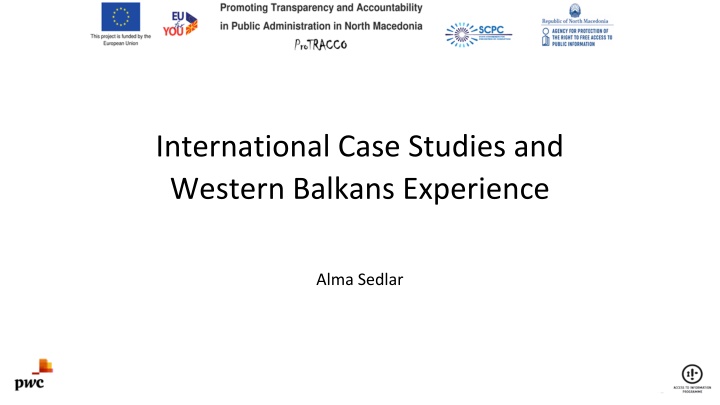

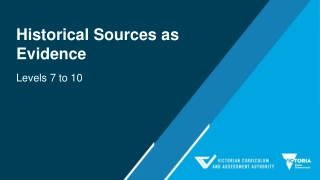

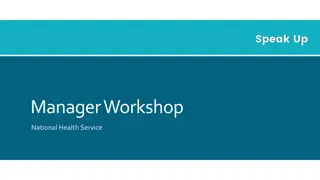
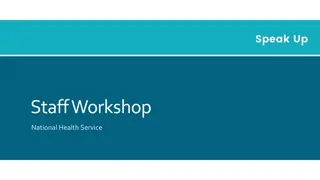
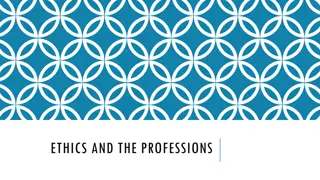
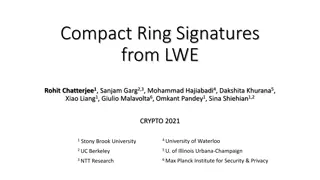

![Comprehensive Overview of Corruption Watch Submission on Public Procurement Bill [B18B-2023]](/thumb/138344/comprehensive-overview-of-corruption-watch-submission-on-public-procurement-bill-b18b-2023.jpg)
